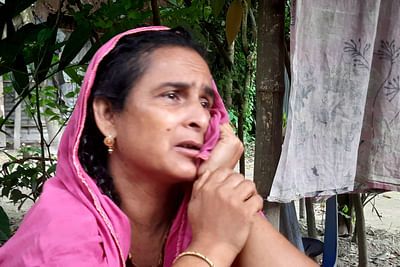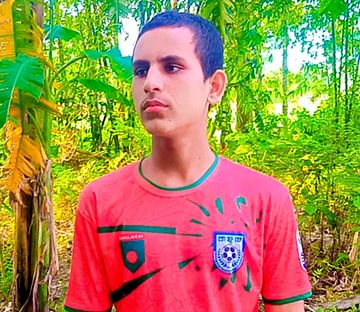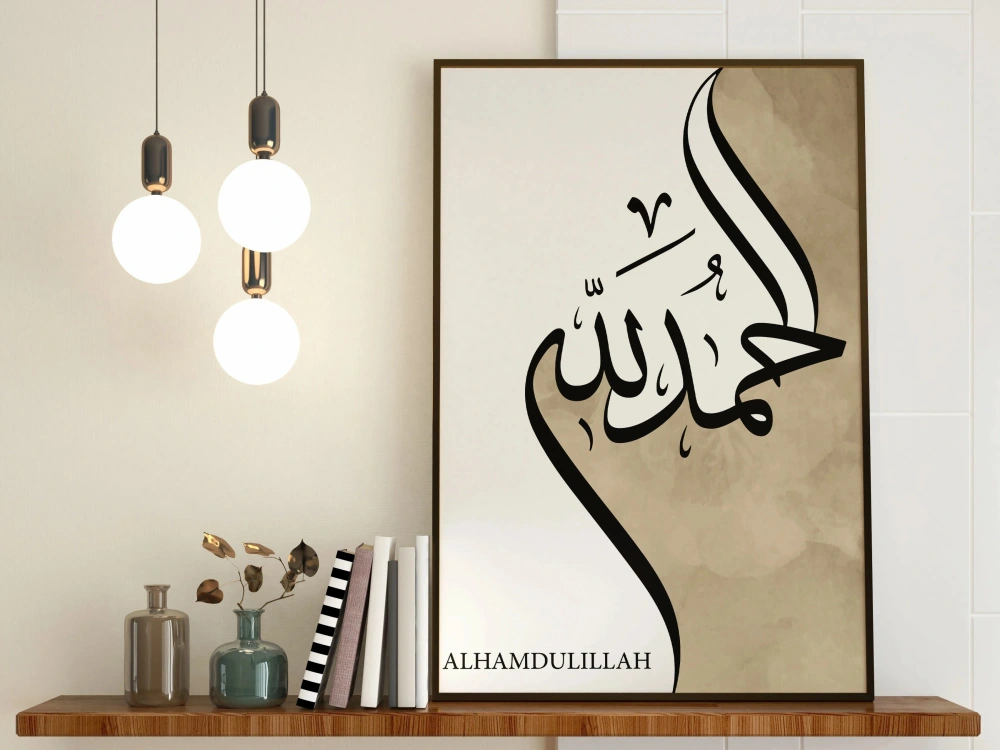Shahidul Islam, a 65-year-old shopkeeper from East Deuldangra village in Nandail, Mymensingh, sighed deeply as he spoke about the tragic loss of his son. “We are poor people. We don’t understand politics, only the struggle to fill our stomachs. That’s why we put our son to work at the age of 15. His earnings kept our household running smoothly. But now, they’ve shot and killed my hardworking son. What did they gain from it? I have suffered a great loss.”

Shahidul’s youngest son, Zaman Mia, was only 17 years old when he was shot during the quota reform protests on July 21. He was injured near the Tania Dyeing Factory in Narsingdi and succumbed to his injuries four days later, on July 25, at Dhaka Medical College Hospital. The police conducted an autopsy and returned his body to the family, who then buried him in their village.
When asked about her son, Zaman’s mother, Minara Begum, broke down in tears. “Can you bring back my child?” she cried. “What did they gain by shooting my son like a bird? What good has it done for the country to make me childless?” Her cries echoed through the village as she called out her son’s name in grief.
Zaman had been working at the dyeing factory in Narsingdi for two years, staying in a nearby mess. On July 21, he was on his way to work when he was shot, with bullets entering through the left side of his abdomen and exiting on the right. He lay on the road for an hour and a half, bleeding heavily, while no one—neither police nor passersby—came to his aid. Eventually, relatives in Narsingdi rushed him to the local hospital, but he received no treatment. He was then transferred to Dhaka Medical College Hospital, where he died after surgery four days later.
Zaman’s older brother, Raihan Mia, expressed his grief and anger, recalling how he had helped raise Zaman. “I carried him on my shoulders as a child, and now I had to carry him to his grave.” Raihan demanded justice for his brother, lamenting that no one had reached out to them. “What kind of country are we living in where there is no justice for killing an innocent boy?” he asked.










